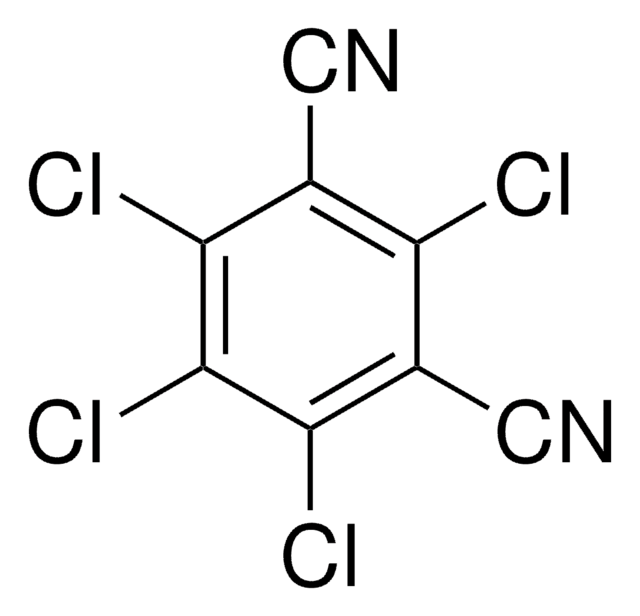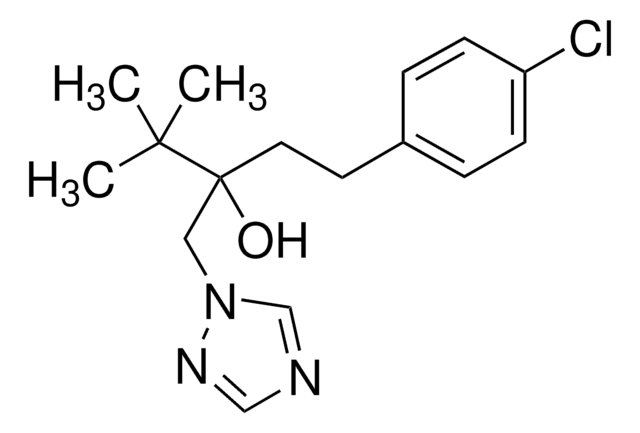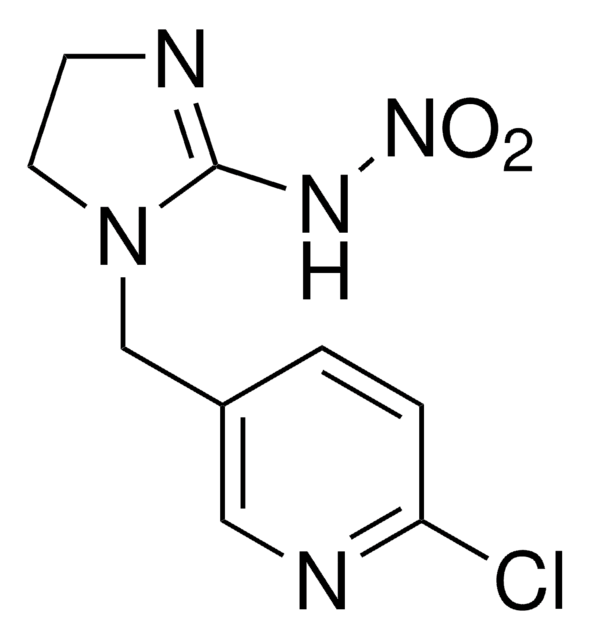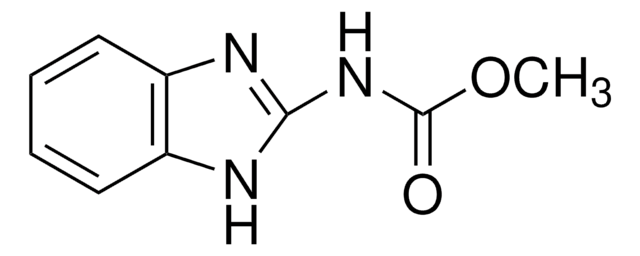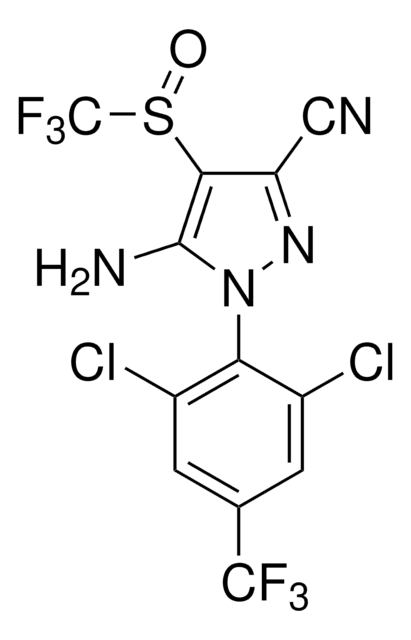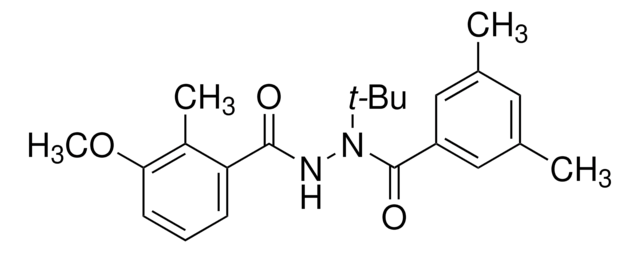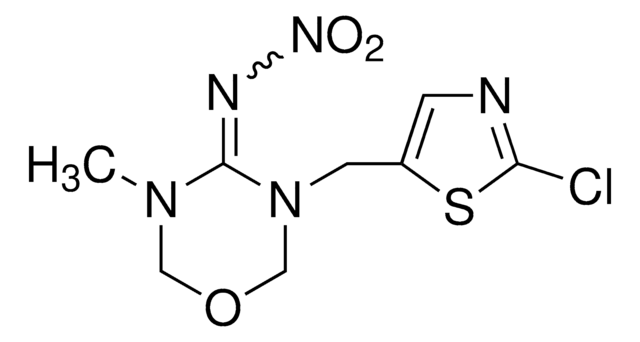N11454
Chlorothalonil
analytical standard
Sinónimos:
Tetrachloroisophthalodinitrile
About This Item
Productos recomendados
grade
analytical standard
packaging
ampule of 250 mg
manufacturer/tradename
Chem Service, Inc. PS-1020
technique(s)
HPLC: suitable
gas chromatography (GC): suitable
application(s)
cleaning products
cosmetics
food and beverages
personal care
format
neat
SMILES string
Clc1c(Cl)c(C#N)c(Cl)c(C#N)c1Cl
InChI
1S/C8Cl4N2/c9-5-3(1-13)6(10)8(12)7(11)4(5)2-14
InChI key
CRQQGFGUEAVUIL-UHFFFAOYSA-N
¿Está buscando productos similares? Visita Guía de comparación de productos
Application
signalword
Danger
Hazard Classifications
Acute Tox. 2 Inhalation - Aquatic Acute 1 - Aquatic Chronic 1 - Carc. 2 - Eye Dam. 1 - Skin Sens. 1 - STOT SE 3
target_organs
Respiratory system
Storage Class
6.1A - Combustible acute toxic Cat. 1 and 2 / very toxic hazardous materials
wgk_germany
WGK 3
flash_point_f
Not applicable
flash_point_c
Not applicable
Elija entre una de las versiones más recientes:
Certificados de análisis (COA)
Lo sentimos, en este momento no disponemos de COAs para este producto en línea.
Si necesita más asistencia, póngase en contacto con Atención al cliente
¿Ya tiene este producto?
Encuentre la documentación para los productos que ha comprado recientemente en la Biblioteca de documentos.
Protocolos
GC Analysis of Agricultural Pesticides (Standard) on SLB®-5ms
Nuestro equipo de científicos tiene experiencia en todas las áreas de investigación: Ciencias de la vida, Ciencia de los materiales, Síntesis química, Cromatografía, Analítica y muchas otras.
Póngase en contacto con el Servicio técnico